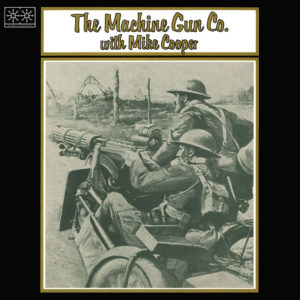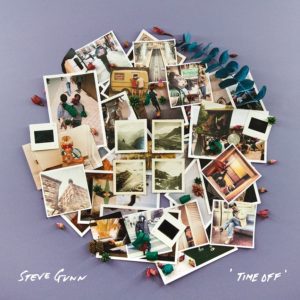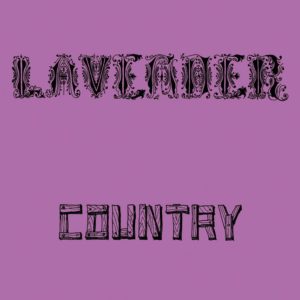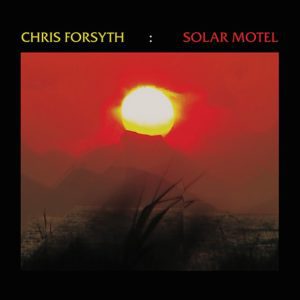Arrestingly singular and deeply moving, this 1988 album by Choctaw, Assiniboine, and Texan poet, journalist, artist, activist, and musician Roxy Gordon (First Coyote Boy) (1945–2000)—whose long out-of-print work has been acclaimed by friends such as Townes Van Zandt, Leonard Cohen, and Terry Allen—sets his cold-blooded, bone-lean reflections on the complexities and contradictions of American Indian (and American) history and identity to atmospheric, synth-damaged country-rock that skirts ambient textures and postpunk deconstructions.
The gatefold package of this first-ever reissue—a decade in the making and the first in an archival series—includes new and restored artwork and a chapbook, featuring forty-eight pages of lyrics, essays, photographs, and First Coyote Boy’s extraordinary drawings for each song. (The chapbook is included in the LP edition only and also available for purchase separately.)
“Roxy Gordon is a brother of mine. I don’t like the word ‘poet’; it is usually used too lightly. Roxy, however, is a real one. God bless him and the buffalo he rode in on.” – Townes Van Zandt
“His work is strong. The word goes out. Can a change come on dove’s feet?” – Leonard Cohen
“Roxy Gordon is one of the great outlaw artist American misfits. He writes like an angel and sings like livin’ hell. His voice is as stone, true as the history of blood and dirt.” – Terry Allen
“Someday maybe Steinbeck will be my favorite writer again but, right now, it’s Roxy Gordon.” – John Stewart
Highlights
- The first-ever reissue, a decade in the making and the first in an archival series, of Roxy Gordon’s scarce and long out-of-print 1988 album, his first widely distributed set of recordings.
- Deluxe LP edition features 140g virgin vinyl; a gatefold jacket with restored, new, and alternate art and photos; and a 48pp. chapbook (PoB-069) with lyrics, essays, photographs, and First Coyote Boy’s extraordinary drawings for each song. (The chapbook is included in the LP edition only and also available for purchase separately.)
- Deluxe CD edition features a gatefold jacket with restored, new, and alternate art and photos, and insert (CD edition does not include the chapbook).
- RIYL: Terry Allen, Leonard Cohen, Jesse Ed Davis, Willie Dunn, Butch Hancock, Willie French Lowery, John Trudell, Keith Secola, Buffy St. Marie, Townes Van Zandt, Floyd Red Crow Westerman, Link Wray, Light in the Attic’s Native North America
- Artist page/links/catalog
Tracklist
A1. “Crazy Horse Is Alive” 3:44
A2. “Junked Cars” 2:17
A3. “Living Life as a Living Target” 3:04
A4. “Flying into Ann Arbor (Holding)” 2:05
A5. “I Used to Know an Assiniboine Girl” 3:41
B1. “The Hanging of Black Jack Ketchum” 3:20
B2. “The Western Edge” 1:56
B3. “An Open Letter to Illegal Aliens” 3:06
B4. “The Texas Indian” 3:26
B5. “Why Do I Miss Someone?” 3:28
[date_and_catalog_section rdate=’LP+chapbook, CD, Digital; PoB-069 / chapbook: May 12, 2023′]
Purchase from PoB above or support via
[related_albums]
Album Narrative
Everything exists and everything will happen and everything is alive and everything is planned and everything is a mystery, and everything is dangerous, and everything is a mirage, and everything touches everything, and everything is everything, and everything is very, very strange.
– Roxy Gordon (1988)
The Choctaw, Assiniboine, and Texan poet, journalist, visual artist, American Indian Movement activist, and musician Roxy Gordon (First Coyote Boy, or Tu Gah Juk Juk Ka Na Hok Sheena) (1945–2000) was above all a storyteller, known primarily as a writer of inimitable style and unvarnished candor, whose wide-ranging work encompassed poetry, short fiction, essays, memoirs, journalism, and criticism. Over the course of his career he recorded six albums, wrote six books, and published hundreds of shorter texts in outlets ranging from Rolling Stone and The Village Voice to the Coleman Chronicle and Democrat-Voice, in addition to founding and operating, with his wife Judy Gordon, Wowapi Press and the underground country music journal Picking Up the Tempo. Along the way he cultivated close friendships with fellow Texan songwriters such as Lubbockites Terry Allen, Butch Hancock, and Tommy X. Hancock, as well as Ray Wylie Hubbard, Billy Joe Shaver, and, most famously, Townes Van Zandt, whom he called his brother. Although his work covered a vast array of topics exploring strata personal, local, global, and cosmic alike, Gordon’s primary subject as a writer, musician, and visual artist was always American Indian culture, specifically the ways it collided and coexisted with European American culture in the South and West—and within the context of his own life and braided identity.
The ten songs on Crazy Horse Never Died, his first officially released and distributed album, were recorded in Dallas in 1988. “Songs” is perhaps an imprecise taxonomy for what Roxy captured on this and his other albums, all of which remain out of print or were released in instantly obscure limited editions of homebrew cassettes and CD-R’s. (Paradise of Bachelors plans to reissue remastered, expanded editions of his catalog; Crazy Horse is the first.) He only occasionally attempted to sing, and his musical recordings are primarily corollaries of, and vehicles for, his poems. His sharp West Texan drawl, tinged by formative years of reservation living in Montana and unmistakable once you hear it—high, lonesome, flat, and cold-blooded as a bare rusty blade—instead patiently unfurls in skewed sheets of anecdotal verse and discursive narrative rants.
Although Gordon’s music at times incorporated powwow style drumming, fiddling, or unaccompanied ballad singing, the majority of it hews to an idiosyncratic spoken word style, accompanied by atmospheric, sometimes synth-damaged country-rock that skirts ambient textures and postpunk deconstructions. His songs are essentially recitations over backing tracks of fingerpicked guitars, rubbery washtub bass, and buzzing, oscillating keyboards. On the stark yellow and red jacket of Crazy Horse, which he designed himself, Gordon describes these recordings as innately ambivalent in terms of form, content, and identity:
“These are poems and/or songs about the American West, white and Indian. My life has been Indian and/or white. Maybe there’s not a lot of difference—maybe. I guess that’s mostly according to which white person or which Indian you’re talking about. That’s probably what this album’s about.”
Crazy Horse Never Died comprises songs that span the personal and political arcs of his writing practice and the poles of his native and white ancestries. His introduction to the almost-title track in the strikingly illustrated poetry chapbook supplement to the album (included in the LP edition of the reissue and also available for purchase separately) draws explicit parallels between the oppression and displacement of Palestinians by Zionists and the similar treatment of Native Americans by Europeans, justifying the historical necessity of resistance to racist imperialism through terrorism. On “Junked Cars” he describes his lonely youth in rural Talpa, Texas amid the desolate landscape and the human wreckage of discarded American material culture.
“The Hanging of Black Jack Ketchum” and “The Texas Indian” confront the complexities and contradictions of Texas history and Gordon’s own family history, which included several Texas Rangers, infamous hunters of Indians and Mexicans. The frenetic, synth-spraying “Living Life as a Moving Target” and the chilling, sinister-sounding “Flying into Ann Arbor (Holding)” confront the complexities and contradictions of mortality, the blind forces that threaten and ravage us, collectively and individually, externally and internally. “The Western Edge” begins in Hollywood, at “Chuck Berry’s girlfriend’s house,” and then careens amiably right off the continent, over the Pacific Ocean ledge. Stabs of sly humor such as heard here punctuate the album with winks of recognition.
“I Used to Know an Assiniboine Girl,” the devastating centerpiece of the record, tells a tragic, elliptical tale of domestic violence and a young woman’s governmental punishment for defending herself, all refracted through the narrator’s deep regret and sorrow as a spectator to her brutalization. As Roxy bluntly explains in the spoken introduction, regardless of extenuating circumstances, “Indian girls up in Montana don’t beat up white guys and not expect to spend time in the penitentiary.”
In “An Open Letter to Illegal Aliens,” Gordon enumerates a litany of diseases—namely, capitalism, communism, materialism and money, Christianity, and Judaism—the “baggage” imported by European immigrants to “these American continents,” which had been doing “pretty well” for some forty thousand years before their arrival. This acid retort to conservative white America’s hysteria about immigration is, in the end, a rather compassionate and tolerant transposition. It’s the ideological baggage that is not welcome on “these American continents,” not those foreign human beings who bear it, who in Gordon’s estimation might be just “as native American as Crazy Horse” (note the lower case “n”), even if they do not behave that way.
In his 1984 essay “Breeds,” from the fine collection of the same name, he concludes with a note of hope:
“The voices of these continents are not stilled because, for a few centuries, this land is overrun by human beings who cannot hear. Over years of cultural and racial genocide, over centuries of lies and misdirection, That Which Is still calls . . . and the old American blood in us listens.”
Roxy’s friend and fellow poet-turned-musician Leonard Cohen had kind words for Breeds, writing: “It is strong. The word goes out. Can a change come on dove’s feet?”
Bestir that old American blood and listen.
Acknowledgments
Roxy Gordon is a brother of mine. I don’t like the word ‘poet’; it is usually used too lightly. Roxy, however, is a real one. God bless him and the buffalo he rode in on.
– Townes Van Zandt
His work is strong. The word goes out. Can a change come on dove’s feet?
– Leonard Cohen
Roxy Gordon is one of the great outlaw artist misfits. He writes like an angel and sings like livin’ hell. He’s got a fine eagle tattoo on his arm, and I like his hat. His voice is as stone, true as the history of blood and dirt. In those mirrored shades he looks like the perfect cross between an ex-state trooper and a serial killer. He’ll hate me for saying that … the state trooper part. Roxy is a brave and solid heart.
– Terry Allen
Someday maybe Steinbeck will be my favorite writer again but, right now, it’s Roxy Gordon.
– John Stewart
From the consistently excellent Paradise of Bachelors label (Terry Allen, Lavender Country) comes another alternative vision of country music from the American South … Much like the reissue of Lavender Country’s 1973 debut, Crazy Horse Never Died elevates the voice of the marginalised in country music, and matches its historical significance with music that is vicious and unusual in its own right.
– The Wire
His spoken vocals are magisterial and are a dead ringer for Dylan’s ripe, idiosyncratic 21st-century shtick. It’s not only the nasal tonality but the phrasing, the timbre and just about everything else … This is rediscovered treasure of the most arresting kind.
– Uncut
A raw and unique perspective on the intersections of American Indian and European American culture, framed through the lenses of history, identity, oppression, and imperialism.
– Bandcamp Daily
This is a fascinating reissue … The Steve Earle-sounding talk-singing and somewhat rudimentary instrumentation might be classed as country music, perhaps Outlaw Country. However, the militant lyrical content means it’s unlike any country music I’ve ever heard.
– Morning Star
Celebrated by TVZ, Leonard Cohen, and Terry Allen, Gordon’s brutal outlaw artistry reflects on the complexities of American Indian life.
– New Commute
A set of hardcore poems set to largely acoustic music…[which] nicely sets up the sophistication of Gordon’s words, turning the language of oppression back on his oppressor with eye-popping potency.
– MOJO
Fans of Jack Kerouac, Tom Waits, Terry Allen and Malcolm Holcombe will revel in Gordon’s poignant and gritty poetic reflections.
– RnR
His voice is transfixing, with his Texan drawl really present in each curling vowel. Musically, there are weird jolts between pastoral country, field recordings and even pulsating synths. Thematically it’s about the treatment of indigenous Americans, but there are universal observations about displacement throughout history. It’s provoking stuff.
– Drift
Beneath Gordon’s spoken word poems, a synth-tinged mixture of acoustic guitar and washboard bass serve primarily as background support. Both bluntly worded and esoteric, the album’s 10 tracks range from a scathing incitement of US immigration policy to a bleak, tragic outlaw ballad to haunting recollections of his childhood in rural Texas. Together they evoke a complex snapshot of Gordon’s outlook on life.
– No Depression
































